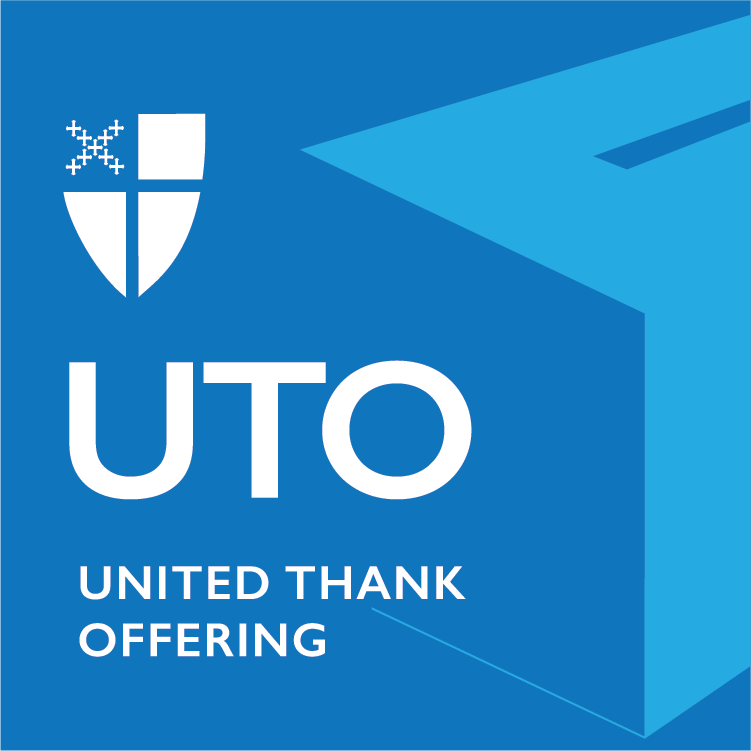By Heather Melton, UTO Staff Officer

Years ago, when I started this job, I got a phone call from a distraught UTO parish coordinator. She told me that her new priest was not allowing her parish to continue to participate in UTO and could I try and talk to him. So I called, and thankfully, he answered. The conversation has stuck with me ever since because it wasn’t about money (often people tell me they stop doing UTO because the congregation is worried about money and doesn’t want to send it away to UTO, but that’s a conversation for another day) but because he felt that they didn’t need to do UTO because the act of giving thanks is at the root of the Sunday Eucharist. The thought was that since every Sunday (at most congregations but at this one in particular) we celebrate the Great Thanksgiving, that is our act of giving thanks. I remember asking if he thought the congregation understood that was what was happening. We had a really good conversation about Eucharistic theology, but when I later asked my congregational leaders about it, I found the connection was not as clear as my fellow clergyperson had hoped. Since then, I have thought about this a lot, and reflected on how giving thanks and gratitude are different. The dictionary is a helpful start—being thankful is a feeling (the feeling of gratitude), whereas being grateful (expressing or actuated thanksgiving) is an action.
When we gather to celebrate the Eucharist, or the Great Thanksgiving, we are expressing our feelings of gratitude to God for the blessings of this life. This is really important work. We have to notice where we can see God’s hand tangled up with ours in the extraordinary creation we are part of, and when we notice that, we give thanks. Being grateful takes the feeling of thankfulness and turns it into action. For example, let’s say you see a beautiful plant being choked out by weeds. You give thanks for the beautiful plants and move on. Gratitude for the beautiful plant is the energy to pull the weeds out so the beautiful plant can thrive. For better or worse, being thankful and being grateful both take work and practice. Being thankful requires us to be awake and aware of the world around us, which sometimes is exhausting. Practicing gratitude is the heavy lifting; that’s why we often talk about how UTO encourages every Episcopalian to adopt a personal spiritual discipline of gratitude. Gratitude requires us to not only notice, but to take part in the good things happening around us. Gratitude demands action, response, and participation.
I often get asked, what is the best way to start UTO in my parish? My answer is always the same: Start by intentionally giving thanks. Infuse the life of your congregation with thankfulness. Help people notice the good things that God is doing, as well as the good things that people are doing and to acknowledge them. Once you’ve mastered that, start practicing gratitude. For example, did everyone give thanks for the volunteers who came for the parish clean-up day? Awesome! Next year, organize a group to bring them snacks or drinks as an act of gratitude. Once we all get comfortable with giving thanks and practicing gratitude, then it is time to talk about making a thank offering, in thanksgiving that all of this—our lives, creation, and so forth—flow as a blessing from God that we are called to respond to.
Make a thank offering as an act of gratitude for the ways others are showing up to be the sign of God’s love in their community but need the support of a UTO grant to accomplish. One of the things we know is that grateful people are generous people, because they see giving as an act of connection and gratitude. I also know, from my own experience, that when we help our congregations become places that value and consciously choose to practice gratitude and giving thanks, they will grow. Giving thanks and gratitude go hand in hand and together they are a powerful force for helping people be seen and given the support they need to thrive. Gratitude builds up the beloved community of God and empowers us to be the hands, heart, and feet of Christ in the world, desperately in need of the love and support it offers. But we can’t expect people to just know how to be thankful or grateful because they come to church, it is something we have to work on together and encourage in the lives of our dioceses, congregations, and families. If you’re looking to build up thankfulness and gratitude in your life, be sure to check out all the resources available at www.unitedthankoffering.com.
